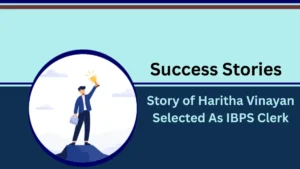Q1. Fiscal deficit is?
(a) Total income less Govt. borrowing
(b) Total payments less total receipts
(c) Total payments less capital receipts
(d) Total expenditure less total receipts excluding borrowing
(e) None of the above
Q2. In the capital market, the term arbitrage is used with reference to?
(a) Purchase of securities to cover the sale
(b) Sale of securities to reduce the loss on purchase
(c) Simultaneous purchase and sale of securities to make profits from price
(d) All of the above
(e) None of the above
Q3. The stance of RBI monetary policy is?
(a) Inflation control with adequate liquidity for growth
(b) Improving credit quality of the Banks
(c) Strengthening credit delivery mechanism
(d) All of the above
(e) None of the above
Q4. Currency Swap is an instrument to manage?
(a) Currency risk
(b) Interest rate risk
(c) Currency and interest rate risk
(d) Cash flows in different currency
(e) None of the above
Q5. “Sub-prime” refers to?
(a) Lending done by banks at rates below PLR
(b) Funds raised by the banks at sub-Libor Rates
(c) Group of banks which are not rates as prime banks as per Banker’s Almanac
(d) Lending done by financing institutions including banks to customers not meeting with normally required credit appraisal standards
(e) None of the above
Q6. Many a time we read a term MSS in relation to banking transactions. What is the full form of MSS?
(a) Money Stabilization Scheme
(b) Market Stabilization Scheme
(c) Maturity and Standardization Service
(d) Money Stabilization Service
(e) None of the above
Q7. RBI’s open market operation transactions are carried out with a view to regulate?
(a) Liquidity in the economy
(b) Prices of essential commodities
(c) Inflation
(d) All of the above
(e) None of the above
Q8. Open market operations, one of the measures taken by RBI in order to control credit expansion in the economy means?
(a) Sale or purchase of Govt. securities
(b) Issuance of different types of bonds
(c) Auction of gold
(d) All of the above
(e) None of the above
Q9. The bank rate means?
(a) Rate of interest charged by commercial banks from borrowers
(b) Rate of interest at which commercial banks discounted bills of their borrowers
(c) Rate of interest allowed by commercial banks on their deposits
(d) Rate at which RBI purchases or rediscounts bills of exchange of commercial banks
(e) None of the above
Q10. What is an Indian Depository Receipt?
(a) A deposit account with a Public Sector Bank
(b) A deposit account with any of depositories in India
(c) A denominated in Indian currency and are issued by a domestic depository and the underlying equity shares are secured with a custodian
(d) All of the above
(e) None of the above
Q11. Euro Bond is an instrument?
(a) Issued in the European market
(b) Issued in Euro currency
(c) Is a bond denominated in a currency not native to the issuer’s home country
(d) All of the above
(e) None of the above
Q12. Money laundering normally involves?
(a) Placement of funds
(b) Layering of funds
(c) Integrating of funds
(d) All of the above
(e) None of the above
Q13. The IMF and the World Bank were conceived as institutions to?
(a) Strengthening international economic co-operations and to help create a more stable and prosperous global economy
(b) IMF promotes international monetary cooperation
(c) The World Bank promotes long term economic development and poverty reduction
(d) All of the above
(e) None of the above
Q14. Capital Market Regulator is?
(a) RBI
(b) IRDA
(c) NSE
(d) SEBI
(e) None of the above
Q15. FDI refers to?
(a) Fixed Deposit Interest
(b) Fixed Deposit Investment
(c) Foreign Direct Investment
(d) Future Derivative Investment
(e) None of the above



 GA Capsule for SBI Clerk Mains 2025, Dow...
GA Capsule for SBI Clerk Mains 2025, Dow...
 The Hindu Review October 2022: Download ...
The Hindu Review October 2022: Download ...
 Story of Haritha Vinayan Selected As IBP...
Story of Haritha Vinayan Selected As IBP...





